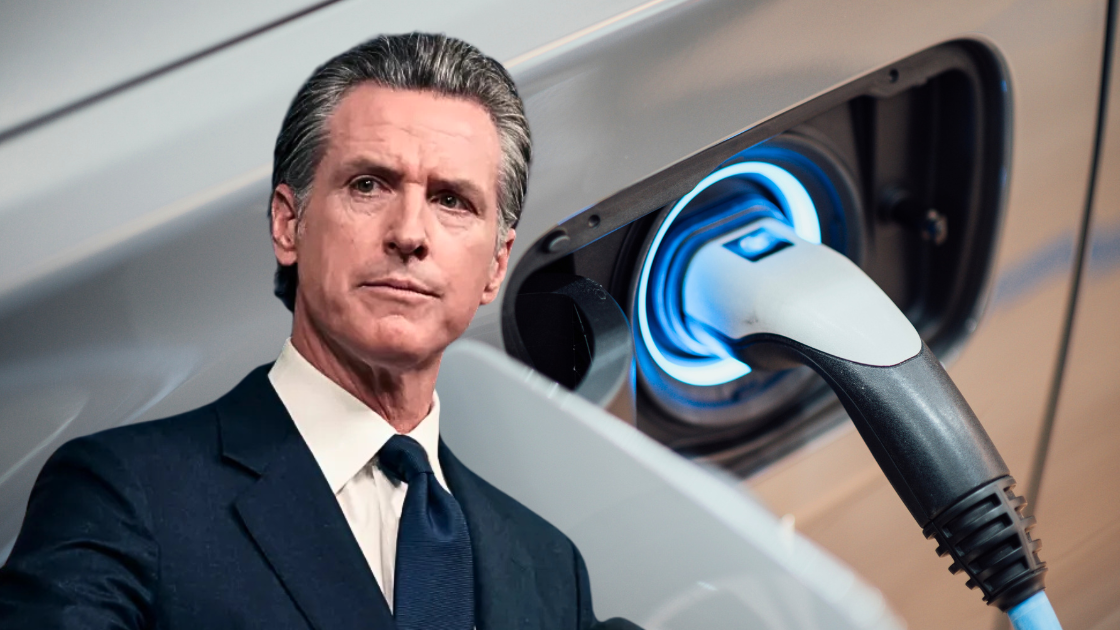
Sixteen states and D.C. are suing the Trump administration for cutting off EV charger funding, setting up a legal fight over the rollback of Biden-era climate programs.
The details: Sixteen states and DC filed a lawsuit Wednesday against the Trump administration for suspending the $5 billion National Electric Vehicle Infrastructure (NEVI) Program, a core component of the 2021 Infrastructure Law focused on helping to boost the EV charging network nationally, which received bipartisan support when enacted.
The lawsuit, filed Wednesday, argues that pausing the $5 billion NEVI program—central to expanding the U.S. EV charging network—unlawfully undermines the 2021 Infrastructure Investment and Jobs Act (IIJA).
The suit takes direct aim at the Department of Transportation, Transport Secretary Sean Duffy, the Federal Highway Administration (FHWA), and its Acting Administrator Gloria M. Shepherd, for suspending the program.
Filed in the Western District of Washington, the 61-page complaint contends that the executive branch does not have the authority to withhold or redirect the charging funding, and that the FHWA was acting unlawfully when it suspended the program.
Tesla received $31 million from the $5 billion initiative before the Trump Administration “paused” the funding in February, saying "no new obligations may occur under the NEVI Formula Program.”
In addition to D.C. and the State of Washington, the plaintiffs include Colorado, California, Arizona, Delaware, Hawaii, Illinois, Maryland, Minnesota, New Jersey, New Mexico, New York, Oregon, Rhode Island, Vermont, and Wisconsin.
What they’re saying: “Colorado has already made significant progress in developing the foundation for infrastructure needed for widespread electric vehicle adoption, and the state’s federally approved plans were designed to fill gaps in rural Colorado and other underserved communities. Congress had the foresight to authorize funding to build this important infrastructure, and it must be restored immediately,” stated Attorney General Phil Weiser.
Why it matters: The NEVI program is already funding charger installations across the country, with states like Ohio, Texas, and New York awarding contracts, breaking ground, and beginning buildouts on the promise of federal dollars. Halting that funding midstream puts hundreds of projects in limbo, and risks wasting both taxpayer money and private capital already committed by vendors, utilities, and site partners.
Yes but, not everyone agrees the spending makes sense. EV registrations have softened in some markets, and critics say the buildout is getting ahead of demand.
Even so, many industry analysts believe the long-term trajectory for EVs remains net positive—with or without full federal backing.
Zeroing in: Attorneys General representing the states that filed the lawsuit said the decision to suspend the NEVI funding is not only illegal; it also strips their states of critical infrastructure funding.
Arizona AG General Mayes said his state will lose nearly $50 million in funding to improve the state electric vehicle infrastructure.
New Jersey’s attorney general, General Matthew Platkin, said suspending the funds amounts to a $70 million blow to critical transportation infrastructure upgrades needed in his state.
“Once again, the Trump administration is attempting to usurp the power of the purse granted to Congress in our Constitution. Our transition to a clean energy future includes investing in electric vehicle infrastructure, which was rightfully acknowledged by Congress, stated Kwame Raou, Attorney General of Illinois.
Bottom line: At its core, this case is about whether EV adoption should be pushed by government policy or pulled by consumer demand. The states behind the lawsuit argue that federal infrastructure funding is essential to accelerate EV growth, especially in rural areas and underserved communities where private investment alone won’t get the job done. But the Trump administration says the market should determine the pace of adoption, not federal mandates.
Outsmart the Car Market in 5 Minutes a Week
No-BS insights, built for car dealers. Free, fast, and trusted by 95,000+ auto pros.
Subscribe now — it’s free.
Want insider knowledge on the most up to date trends in auto retail?
The Haig Report® is auto retail's longest-published and most-trusted quarterly report tracking trends and their impact on dealership values. Since 2014, this report has delivered analysis on dealership performance, market trends, and franchise valuations—offering a clear view of opportunities and challenges in automotive retail.
Join the leaders in the industry who rely on the Haig Report® for:
Exclusive insights into dealership values and valuation trends
Franchise insights and outlooks on brand desirability
Market trends to help you make informed business decisions
The only report to publish blue sky values every quarter.
Looking to grow your portfolio or explore dealership investments? Join our exclusive buyer and investor database—scan the QR code above or visit haigpartners.com/buyerdatabase.











